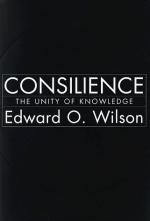
|
| Name: _________________________ | Period: ___________________ |
This test consists of 5 short answer questions, 10 short essay questions, and 1 (of 3) essay topics.
Short Answer Questions
1. What role does Wilson ascribe to human nature?
2. How do widely distributed cultural traits affect genes?
3. What explanation does Wilson offer for incest taboos?
4. How does postmodern influence portray existence?
5. What were the first artistic images of animals intended to evoke, according to Wilson?
Short Essay Questions
1. What is the fundamental assumption behind consilience?
2. What does Wilson say is the relationship between human genetics and the development of culture?
3. Where does ethics come from, in E.O. Wilson's account?
4. What are the two branches of anthropology Wilson describes, and what question does he say they both fail to answer?
5. How do the senses function as epi-genetic rules?
6. What role does the incest taboo have in genetic and cultural development?
7. How does postmodern art resist consilience, in E.O. Wilson's account?
8. What is the purpose of the social sciences, and how does Wilson distinguish the social sciences from the physical social sciences?
9. How does art look through the gene-culture evolution paradigm Wilson offers?
10. What does Wilson say the liberal arts should address?
Essay Topics
Write an essay for ONE of the following topics:
Essay Topic 1
Is consilience possible, and if so, who would practice it? Is it necessarily communal? In our modern circumstance of specialized research and analysis, can one person--can one panel of people contain and unify all knowledge? Is Wilson arguing for the unification of knowledge, or just better networks and communication between disciplines?
Essay Topic 2
What kinds of situations or uses would consilience be best for, and what kinds of knowledge or what situations would not benefit by a 'consilient' perspective? What are the limitations of Wilson's consilience? What are the strengths?
Essay Topic 3
How does Wilson refute claims by philosophers of individual experience, who say that truth is personal, and that the search for unity of knowledge will always result in self-opposition, as Freud shows is the case in the unconscious? Does Wilson seem to be at war with himself anywhere within the book, or are his ideas consistent with the possibility of unification of knowledge?
|
This section contains 773 words (approx. 3 pages at 300 words per page) |

|




